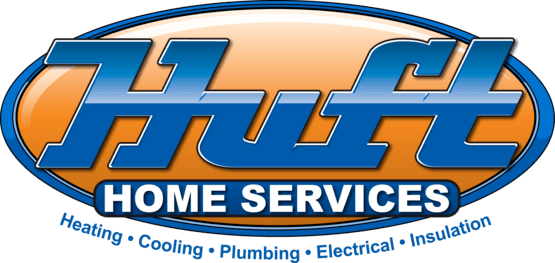2024 might be one of the best years to plan HVAC home improvement projects. This is because of the Inflation Reduction Act (IRA). Recently, the US Department of Energy announced that they are accepting applications that allow states to apply for funding, that is, money that has already been set aside for the IRA. The purpose is to create state rebates for individuals who make energy-efficient home improvements. This is part of the current administration’s Investing in America agenda.
The rebates are provided to encourage homeowners to make energy-efficient upgrades. The thought is that if the upgrades are affordable, homeowners will do them, and at the same time, they can take advantage of lowered home energy costs.
In 2023, homeowners looking to make energy-efficient improvements can claim two federal tax credits. One is the federal solar tax credit. The second is the state tax credit. The federal solar tax credit will cover up to 30% of solar improvement costs. Depending on where a person lives, on a state level, additional tax credits may be available. Solar energy could be used in conjunction with certain HVAC improvements to make heating the home and water more efficient. When new state rebates roll out in 2024, there will be more benefits to homeowners via the IRA incentives.
Understanding the Energy-Efficient Home Improvement Credit
The energy-efficient home improvement credit used to be called the Nonbusiness Energy Property credit. It helps to offset the cost of home energy-efficient upgrades. The goal is to reduce overall energy usage. In most homes, HVAC appliances account for a good portion of the home’s energy usage. It’s important to note that the energy-efficient home improvement credit only applies to existing homes. It does not apply to systems purchased for new homes.
Changes to the Energy-Efficient Home Improvement Credit
One of the biggest changes is the removal of the lifetime cap on the value of the rebates a person can get for home improvements. As of 2023, homeowners can make qualifying improvements every year until 2032. And they can get credits each year with a max value of $3,200. This means that since homeowners are not forced to stay within a lifetime limit, they can make home improvements repeatedly, enjoying the benefits multiple times. The amount homeowners will receive varies based on the improvements they make and the year they make these improvements.
For example, if you made an improvement between 2005 and 2022, the lifetime limit was $500. However, if you make an improvement between 2023 and 2032, you have an annual limit of $1,200, with an additional $2,000 available each year for heat pumps, heat pump water heaters, biomass boilers, and biomass stoves. This means a $3,200 total limit.
How Do Homeowners Qualify?
To qualify for these credits, the HVAC improvement you make in your home must harmonize with the energy-efficient requirements laid out by the government. A tax or HVAC professional can help clear up any questions you have about what improvements qualify. The standards your improvements must meet are stipulated by the Consortium for Energy Efficiency, The International Energy Conservation Code, and the National Electric Code.
Credits For Different Home Improvements and Amounts
Energy-Efficient Home Improvement Credit Amounts and Requirements
For biomass stoves and boilers, central AC, heat pumps, and heat pump water heaters, the incentive has increased to 30% of costs, including labor up to $2,000, substantially boosting efficiency upgrades. Meeting the Consortium for Energy Efficiency’s highest tier of efficiency, with a thermal efficiency rating of at least 75%, ensures these upgrades contribute to a more sustainable and energy-efficient home.
Homeowners investing in home energy audits can now receive a 30% reimbursement of costs, up to $150, provided the audit includes a home inspection by a certified auditor followed by a written report. Insulation improvements are now eligible for a 30% reimbursement of costs, up to $1,200, if they meet International Energy Conservation Code standards.
Lastly, for natural gas, propane, or oil water boilers and water heaters, meeting the Consortium for Energy Efficiency’s highest tier of efficiency qualifies for a $300 incentive, covering 30% of costs, including labor up to $600. Electric panels installed in accordance with the National Electric Code and with a load capacity of at least 200 amps are now eligible for a 30% reimbursement of costs, including labor up to $600. These enhanced incentives aim to encourage homeowners to make energy-efficient improvements, contributing to a more sustainable future while providing financial benefits.
Residential Clean Energy Credit Amounts and Requirements
Geothermal heat pumps and solar systems, including panels and water heating components, each qualify for a 30% tax credit encompassing costs, including labor. To be eligible for this incentive, geothermal heat pumps must meet the stringent Energy Star requirements, ensuring their energy efficiency and performance standards align with industry benchmarks. Similarly, solar systems must adhere to the criteria set forth by the Solar Rating Certification Corporation or an analogous organization sponsored by comparable industry standards. By meeting these requirements, geothermal heat pumps and solar systems validate their eligibility for the 30% tax credit.
How to Claim IRA Tax Credits
Projects are considered for the tax year in which they’re completed. Maintain records such as product receipts and manufacturer certifications to verify energy-efficiency compliance. Though these documents aren’t required for filing, keeping them is crucial for potential audits.
Additionally, the IRA legislation introduces two rebate programs: the Home Energy Performance Based, Whole House Rebate (HOMES) and the High-Efficiency Electric Home Rebate. State energy offices will manage these programs based on Department of Energy guidelines. While participation becomes possible in late 2023 or early 2024, planning is essential. Both rebate programs offer point-of-sale discounts, but the financial benefits vary depending on factors like household income, energy upgrade specifics, and state regulations.
Special Incentives for Low and Medium Income Households
The High-Efficiency Electric Home Rebate is designed to motivate low- and medium-income households to make their homes more energy-efficient through specific upgrade incentives. Eligibility for this rebate is determined by income thresholds, with only households falling below 150% of an area’s median income qualifying. For those within the 80% to 150% income range, the rebate covers 50% of the cost for a qualified electrification project, with a maximum cap of $14,000. In contrast, households below the 80% threshold of the area’s median income can receive up to 100% coverage for their qualified electrification projects.
Furthermore, the rebate outlines maximum amounts for various qualified upgrades. These include up to $1,600 for insulation, air sealing, and ventilation; $ 4,000 for an electric load service center; $2,500 for electric wiring; $840 for an Energy Star electric heat pump clothes dryer; $8,000 for an Energy Star electric heat pump; $1,750 for an Energy Star electric heat pump water heater. By offering these financial incentives, the program aims to facilitate energy-efficient home upgrades, fostering sustainability while assisting households in lowering their utility expenses.
Heating and Air Conditioning Service in Sacramento
At Huft Home Services, we are committed to offering high-quality HVAC services throughout Sacramento. We want to be a place where people can go and feel confident that the service they receive is the best. We have a team of NATE-certified technicians. We are a Better Business Bureau-accredited and NCI-certified company that puts the needs of each one of our customers first.
Our services include HVAC installation, repair, and maintenance. We offer plumbing services, including water heater installation, drain cleaning, sump pumps, and gas lines. Our electrical services include panel upgrades, electrical wires, and surge protections. Contact Huff Home Services today and see for yourself how we exceed our customers’ expectations.



